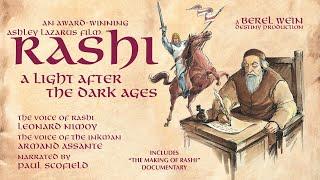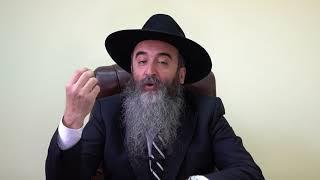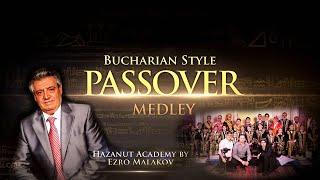Problems playing the video? Click Here to reload
Watch Videos: Random | New | Popular
All Essays | Report Video
|
Share Video
- Buy Us a Coffee -
Rabbi Simon Jacobson
Empathy -- understanding, feeling and being sensitive to the feelings of another -- is a very mysterious, and necessary, component in life. What would we be like if we had no compassion for others, and others had no compassion for us? Why is it that when a friend hits her thumb with a hammer, you don't have to put much effort into imagining how this feels. You know it immediately. You will probably tense up. Your "Ouch!" may arise even quicker than your friend's, and chances are that you will feel a little pain yourself. Why?
Neuroscience now offers an answer: "mirror neurons" describe a phenomenon of feeling another person's feelings as if they were you own. A recent line of research has demonstrated that seeing other people being touched activates primary sensory areas of your brain, much like experiencing the same touch yourself would do. What these findings suggest is beautiful in its simplicity -- that you literally "feel with" others. The benefits of empathy are also now being increasingly documented. Psychologists have found that empathy is one of the most important aspects of creating harmonious relationships, reducing stress, and enhancing emotional awareness. Feeling empathy for others and for oneself brings a sense of peace, connection, and perspective. Conversely, when there is an absence of empathy in a particular relationship or situation, or how one relates to himself, one often experiences stress, disconnection and negativity. What is becoming rapidly clear is that we are all connected. The only thing that really separates us is our skin -- which defines our bodies as distinct from others. But our brains are totally synched, or can be if we let them.
This "neural resonance," also leads to the astonishing possibility of "contagious neurons" which can affect a critical mass (this was corroborated in an old and very famous 1950's experiment -- known as the "Hundredth Monkey" -- that astounded science, as reported by biologist Lyall Watson): when a certain number of individuals learn something, or a persuaded of something, then the idea spreads like lightning through the neighboring population, which can explain fads, social consciousness movements, and many other phenomena.
Long before modern neuroscience and psychology, the Torah teaches the power of empathy, and its impact on our lives, communities and the world. Because the bottom line is this: We are all connected. Our brains are connected. And when a certain number of us -- the critical mass -- forges a bond, it affects us all. It affects nothing less than the whole universe.
As we enter the third week of a powerful, 3325-year old Omer system, of personal refinement and character development, please join Rabbi Jacobson as he dissects our empathy tools (tiferet). Discover methods to diagnose your life skills, to identify your strengths and weaknesses and incorporate techniques to access and improve the way you feel for others, and how this can radically improve your situation and the world at large. This is the second of a series of classes dedicated to exploring all our emotional faculties to help us enhance our lives and relationships.
Empathy -- understanding, feeling and being sensitive to the feelings of another -- is a very mysterious, and necessary, component in life. What would we be like if we had no compassion for others, and others had no compassion for us? Why is it that when a friend hits her thumb with a hammer, you don't have to put much effort into imagining how this feels. You know it immediately. You will probably tense up. Your "Ouch!" may arise even quicker than your friend's, and chances are that you will feel a little pain yourself. Why?
Neuroscience now offers an answer: "mirror neurons" describe a phenomenon of feeling another person's feelings as if they were you own. A recent line of research has demonstrated that seeing other people being touched activates primary sensory areas of your brain, much like experiencing the same touch yourself would do. What these findings suggest is beautiful in its simplicity -- that you literally "feel with" others. The benefits of empathy are also now being increasingly documented. Psychologists have found that empathy is one of the most important aspects of creating harmonious relationships, reducing stress, and enhancing emotional awareness. Feeling empathy for others and for oneself brings a sense of peace, connection, and perspective. Conversely, when there is an absence of empathy in a particular relationship or situation, or how one relates to himself, one often experiences stress, disconnection and negativity. What is becoming rapidly clear is that we are all connected. The only thing that really separates us is our skin -- which defines our bodies as distinct from others. But our brains are totally synched, or can be if we let them.
This "neural resonance," also leads to the astonishing possibility of "contagious neurons" which can affect a critical mass (this was corroborated in an old and very famous 1950's experiment -- known as the "Hundredth Monkey" -- that astounded science, as reported by biologist Lyall Watson): when a certain number of individuals learn something, or a persuaded of something, then the idea spreads like lightning through the neighboring population, which can explain fads, social consciousness movements, and many other phenomena.
Long before modern neuroscience and psychology, the Torah teaches the power of empathy, and its impact on our lives, communities and the world. Because the bottom line is this: We are all connected. Our brains are connected. And when a certain number of us -- the critical mass -- forges a bond, it affects us all. It affects nothing less than the whole universe.
As we enter the third week of a powerful, 3325-year old Omer system, of personal refinement and character development, please join Rabbi Jacobson as he dissects our empathy tools (tiferet). Discover methods to diagnose your life skills, to identify your strengths and weaknesses and incorporate techniques to access and improve the way you feel for others, and how this can radically improve your situation and the world at large. This is the second of a series of classes dedicated to exploring all our emotional faculties to help us enhance our lives and relationships.
- Category
- Empathy - Сочувствие
- Tags
- emapthy
Commenting disabled.
















